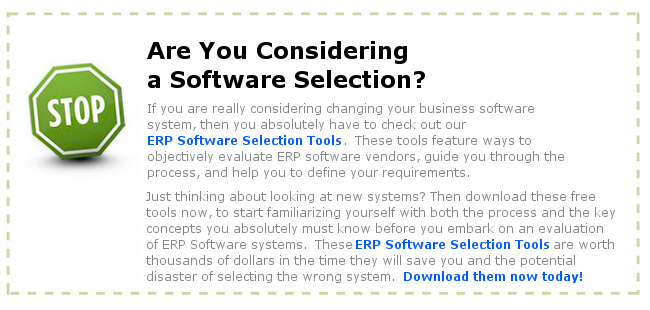 For any business to be successful, it has to manage its operations deftly, both within its organizational framework as well as with the outside world. Today, a lot of innovative solutions and software are available in the market to address to both these needs and make management easier. These are Enterprise Resource Planning (ERP) and Customer Relationship Management or CRM.
For any business to be successful, it has to manage its operations deftly, both within its organizational framework as well as with the outside world. Today, a lot of innovative solutions and software are available in the market to address to both these needs and make management easier. These are Enterprise Resource Planning (ERP) and Customer Relationship Management or CRM.
ERP utilizes ERP software applications to improve the performance of organizations’ resource planning, management and operational control. ERP software is multi-module application software that integrates activities across functional departments like product planning, purchasing, inventory control, product distribution, order tracking, finance, accounting and human resources aspects of an organization. The goal of ERP is to improve and streamline internal business processes, which typically requires reengineering of current business processes. The users of ERP systems are employees of the organization at all levels, from workers, supervisors, mid-level managers to executives.
Whether a small or home-based business venture or a large corporate, the customers shape future potential of any business venture. Hence keeping the customer happy is one of the baselines of a successful business. Achieving customer satisfaction involves various things like understanding their problems and solving them quickly, and serving them in a better manner thenceforth. And so to simplify things, we have Customer Relationship Management or CRM.
CRM is a term for methodologies, software, and usually Internet capabilities that help an enterprise manage customer relationships in an organized way. For example, an enterprise might build a database about its customers that describes relationships in detail so that management, salespeople and perhaps the customs themselves can directly access information. Most online shopping portals can be cited as an example. Effective CRM application involves customizing the CRM software to match your own business type, whether it is B2B or B2C, and making sure that the customer care executives understand the basic premise and technicalities of operating the software.

